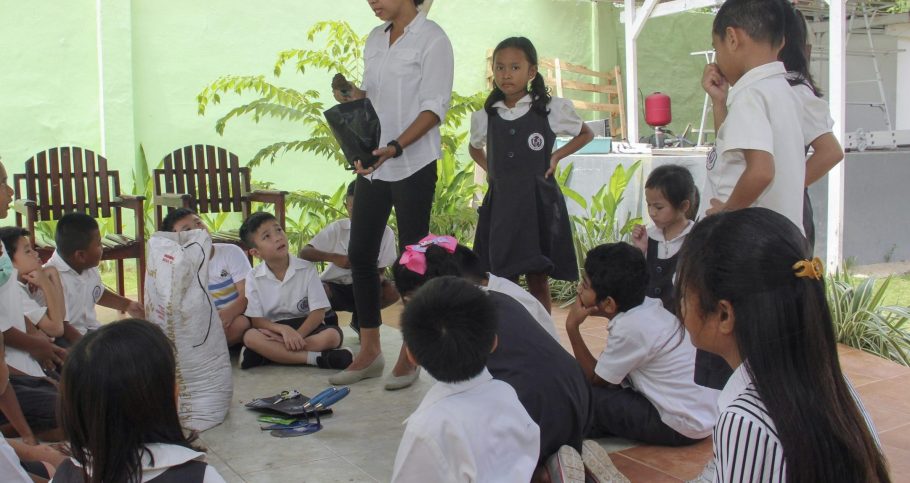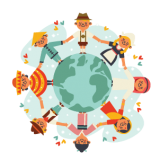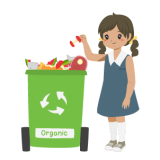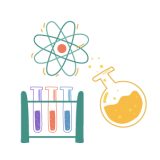
Principle
The education of Elementary in Buoyant Montessori School is divided into two level. The first level is 6-9 aged for year 1 -3 in lower Elementary and the second level is 9-12 aged for year 4-6 in upper Elementary.
Children in elementary advance their thinking processes in several ways, they can remember and imagine things, they can begin to think and understand about the past, the present and future. The children also can have more than one idea and emotion at a time.
Mathematics

Mathematics uses numbers and symbols to measure, count and calculate. Mathematic is a big subject that consists of many areas of study, including geometry. The purpose of our math is to develop and to prepare the children for a gradual transition from concrete that still use the material to Abstract thinking that only use symbol. Montessori Math materials are design to teach children about the number and concept step by step trough a logical Sequence. Children also learn the mathematic to invent, create and discover construct using math, people use mathematics every day, students have their natural curiosity about Numbers and quantity, and Montessori Math curriculum help them to explore their interest in a concrete manner.
Language

Language enables human being to communicate with each other, exchange ideas, and gains an understanding of their world. In our language, program we start from penmanship, reading, words study, mechanics of writing Grammar, simple sentence analysis spelling and vocabulary building, literary elements creative writing and research skill.
Geography Study

Trough the study of geography, students can gain an appreciation of the world’s beauty, its fragile ecosystem and interdependence of its diverse people. Geography thus involves studying not only the earth, but also the people and other living things that inhabit the earth. There are two parts of geography study in our school:
- Cultural Geography that studies the specific people and places of various regions of the earth.
- Physical Geography studies the earth’s physical environment, including the Natural and active processes that have formed, and continue to form, the earth’s features.
Practical life

Practical life activities refer to the presentation and activity that provide the students with opportunities to learn, practice, and develop motor skills, develop confidence in their abilities, develop independence, and get along with others. In Montessori classroom, these activities focus on developing real-life skills to learn to control their own movements.
Art

Self-expression trough art is an important part of our program and allows students to be creative. Our art and craft in our Friday activity program encourages children to explore with a variety of art. The student’s art is documented trough video or photography and will be displayed with great respect.
Science

In our science we have:
- Zoology[Modal-Window id=”1″]
- Botany [Modal-Window id=”2″]
- Matter and Astronomy [Modal-Window id=”3″]
- Health Sciences, Art and Music [Modal-Window id=”4″]
Any Question?
Levels
Children in lower elementary advance their thinking processes in several ways, they can remember and imagine things, they can begin to think and understand about the past, the present and future. The children also can have more than one idea and emotion at a time.
When the children get older their ability to think develop can even more. They are able to think logically in a way that show understanding of sequence and of cause and effect, desire to develop relationship also capability to understand abstract concept.
The children having the change to keep their surrounded in order them self. They are doing real-life work over play and using real-life work materials rather than toys and working in quiet often complete silence. Children learn by receiving neither reward nor punishment and they have the opportunity to correct their own mistake and also have freedom to choose their work to do or material to work with.

Each child is a unique person with particular aptitudes and interests. The role of the Montessori guide is to provoke questions and teach the children the skills to answer those questions. The teacher serves as a guide to each child in his or her own learning, exploring a diverse curriculum, and creating rich learning experiences as the child moves from concrete to abstract thinking. Our teachers match their instruction with each child’s learning style and natural talents, ensuring every child is engaged and invested in learning, and capable of achieving success.
The children in our Elementary classrooms learn to research information, write reports, and make presentations to the group. The range of topics is limitless and the curriculum is vast.
Together, children and guides create an inclusive environment that supports social and emotional development. Children help one another and come to feel that helping is part of living. The feeling in the room is more like that of an extended family, and the focus on respectful social interaction and problem solving cultivates a social maturity a typical of children of this age. The strength of these relationships allows the children to take risks, voice opinions, and creatively express themselves.
In our Montessori programs has ample opportunity to develop and practice research skills throughout the elementary program also makes it possible for students to organize and share with other the information they have gathered about topics that interest them. With a natural interest in fairness and justice, students at this stage are at the idea time to benefit from cosmic education, which builds into every subject and all parts of the program concrete ways of showing respect, adopting peacefully practices, learning about other people and places, and developing an awareness of personal responsibility for contributing in a positive way to the world. Cosmic education is often described as the soul of the elementary curriculum.

